In the race for consumer attention, where every brand seeks dominance, temporary sales no longer suffice. The real challenge lies in cultivating loyal customers—those who not only return repeatedly but also become passionate advocates for your brand. These individuals are the lifeblood of any business, driving sustained growth, stability, and reputation.
While customer acquisition remains a priority, businesses that focus solely on attracting new clients risk neglecting their most valuable asset: existing customers. Studies consistently show that retaining loyal customers is significantly more cost-effective than acquiring new ones, yet many brands still struggle to prioritise this vital aspect of their strategy.
Loyalty goes beyond mere transactions; it’s about forging meaningful, long-lasting relationships. A loyal customer is not just someone who purchases your products or services—they’re someone who believes in your brand, recommends it to others, and sticks with you even when competitors try to lure them away. Cultivating this kind of dedication requires more than just great products; it demands a genuine connection built on trust, understanding, and consistently exceptional experiences.
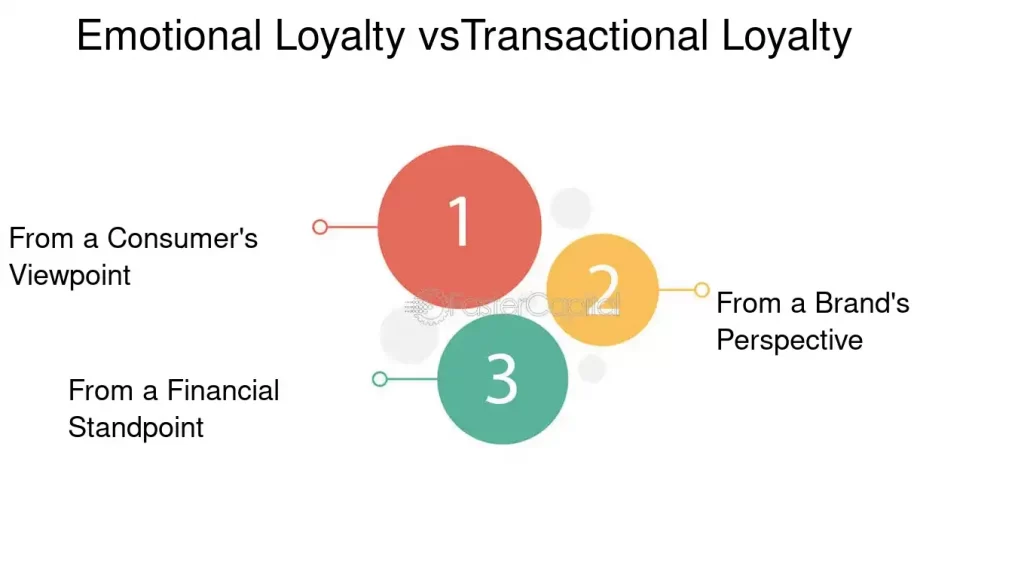
Emotional Loyalty vs Transactional Loyalty – Business customer loyalty programs: Loyalty Beyond Transactions: Building Emotional Connections
For businesses aiming to make an indelible mark, loyalty isn’t a tactic—it’s a mindset. It’s the ability to see beyond the immediate sale and focus on the long-term value of a satisfied customer. Whether you’re a global corporation or a local boutique, the principles of loyalty apply universally. Understanding what motivates your customers, anticipating their needs, and exceeding their expectations are the foundations of building a devoted customer base.
In this ever-evolving digital age, where customer preferences shift rapidly and competition is fiercer than ever, cultivating loyalty is not only important—it’s essential. Loyal customers become brand ambassadors, creating a ripple effect of positive word-of-mouth and driving organic growth. They are also more likely to provide valuable feedback, helping you refine and improve your offerings.
Let’s delve into the art of building and retaining a devoted customer base, exploring why loyalty matters, how to nurture it, and how to measure its impact effectively. By the end of this guide, you’ll have a clearer understanding of how to turn casual buyers into lifelong advocates for your brand.
Why Loyalty Matters
Loyal customers are the cornerstone of successful businesses. Research from FinancesOnline reveals that 80% of a company’s future revenue often comes from just 20% of its existing clients. Furthermore, loyal customers are known to spend up to 67% more than new customers, highlighting their significant financial impact.
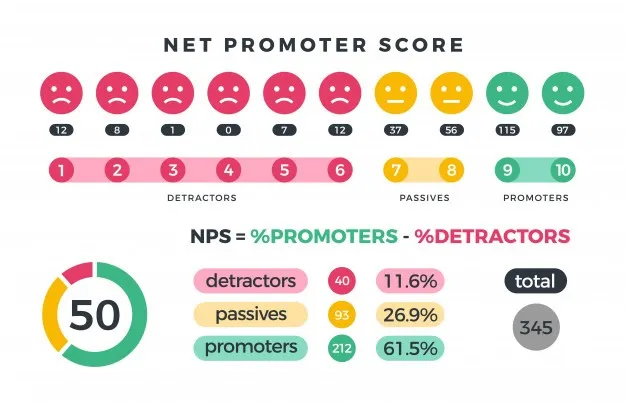
Net Promoter Score (NPS): Seeing the breakdown of the categories with NPS lets you focus on which group you want to target to increase your company or product’s rating.
Retention is also far more cost-effective than acquisition. Studies show acquiring a new customer can be five to seven times more expensive than retaining an existing one. Yet the benefits of loyalty extend beyond economics. Loyal customers become brand ambassadors, championing your business through word of mouth—an invaluable marketing tool. In fact, Nielsen’s Global Trust in Advertising Report (Nielsen) highlights that recommendations from friends and family are trusted more than any form of advertising.
Building Loyalty: Where to Begin
Surpassing Expectations
Loyalty begins with consistently exceeding expectations—not through extravagant gestures or constant discounts, but by crafting memorable, meaningful experiences that resonate deeply with your customers, especially when delivering complex offerings like digital transformation solutions. It’s about going beyond the basic promise of delivering a product or service and creating moments that leave a lasting impression.
For instance, imagine planning a corporate event in London. The success of such an occasion depends on more than just finding a suitable venue; it’s about creating a truly memorable experience for attendees. Companies aiming to impress their clients or partners often need to hire event spaces in London that not only meet practical requirements but also elevate the overall experience. Research highlights how delivering exceptional customer experiences can significantly impact customer loyalty and retention. According to HubSpot, a 5% increase in customer retention can lead to a 25-95% increase in profitability. Additionally, SEMrush reports that 84% of companies prioritising customer experience see increased revenue. These findings underscore the vital role of customer experience in fostering loyalty and driving business growth.
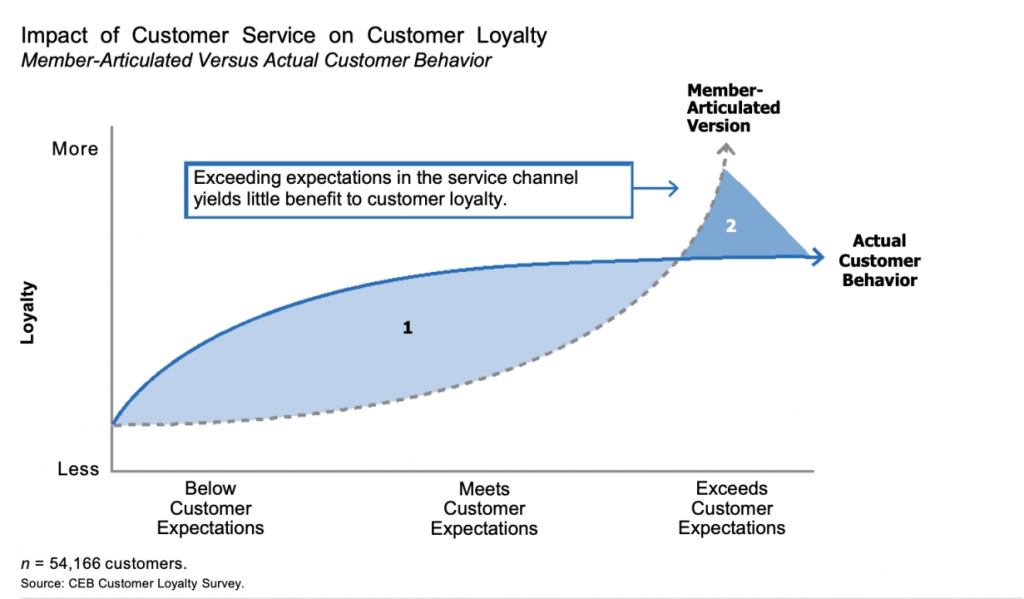
Exceeding expectations doesn’t have to be costly. It’s often the small, unexpected gestures—such as proactively addressing potential issues, surprising customers with personalised perks, or simply delivering more than promised—that make a significant impact. By identifying pain points and solving problems before they arise, you not only build trust but also position yourself as a brand that genuinely cares.
The Personal Touch
Generic approaches no longer cut it. Today’s customers expect tailored experiences that reflect their preferences and needs. Brands that personalise their interactions often see a significant uptick in engagement, as personalisation demonstrates a genuine understanding of the customer’s journey.
From customised product recommendations to targeted marketing campaigns, personalisation creates a sense of exclusivity that resonates with modern consumers. It’s not just about selling a product or service—it’s about showing customers they’re valued as individuals. Tools that track customer preferences, behaviours, and feedback can transform raw data into actionable insights, paving the way for deeper, more meaningful connections.
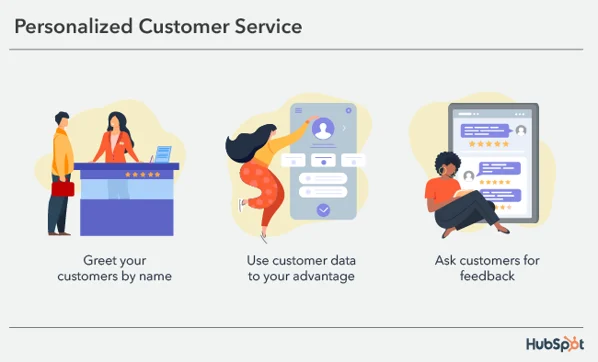
Moreover, a personalized approach enhances trust, as customers are more likely to remain loyal to brands that anticipate their needs and address them proactively. In a crowded marketplace, personalisation is no longer optional—it’s the key to standing out and fostering enduring loyalty.
Emotional Connections
Loyalty isn’t just about satisfaction—it’s about fostering emotional bonds. Gallup’s research on customer loyalty (Gallup) emphasises that emotional connections drive higher retention rates. Brands like John Lewis excel in creating these ties by aligning with shared values, tapping into cultural nuances, and delivering beyond the transactional.
Rewards That Resonate
Loyalty programmes succeed when they make customers feel genuinely valued. A simple yet meaningful system—be it exclusive perks, first access to new products, or a well-crafted points system—can be immensely effective. The key is simplicity and relevance, ensuring customers feel recognised without unnecessary complexity.
Keeping the Connection Strong
Speed and Transparency
In an age of immediacy, quick responses are essential. Addressing queries or resolving issues swiftly demonstrates respect for your customers’ time. Transparency is equally critical. McKinsey & Company’s post-pandemic customer retention strategies underline that clear, honest communication fosters trust, particularly during challenging times.

The impact of swift responses and transparent communication on customer trust over time: how closing the loop isn’t just good practice but a game-changer in the quest for customer loyalty and business success
Small Surprises, Big Impact
Sometimes, the smallest gestures make the biggest difference. A handwritten thank-you note, a surprise upgrade, or acknowledging milestones can create a lasting impression. These unexpected touches often generate disproportionate goodwill.
Aligning with Shared Values
Modern consumers increasingly align with brands that reflect their values. Sustainability, community involvement, and ethical practices are no longer optional; they’re imperative. A Harvard Business review study shows customers are willing to pay a premium for brands with a genuine commitment to doing good.
Incorporating meaningful initiatives—such as eco-conscious packaging or supporting local communities—demonstrates shared values, deepening the emotional connection with your audience.
A Two-Way Street
Listening to Feedback
Feedback is crucial in shaping a QA strategy that evolves with customer expectations. Your most loyal customers are also your most honest critics. Listening to their feedback not only strengthens your relationship but also guides you in improving your offerings. Acting on customer insights demonstrates that their opinions matter, fostering a stronger bond.
Constant Innovation
Even the most dedicated customers can lose interest if your offerings stagnate. Innovation is loyalty’s best partner. For instance, businesses offering eCommerce development solutions can retain clients by continually introducing features like advanced analytics, seamless integrations, and user-friendly designs, ensuring their customers remain engaged.
Recognise and Celebrate
Loyalty deserves recognition. Public shout-outs, exclusive events, or personalised rewards go a long way in celebrating your most devoted customers. This not only deepens your relationship but also serves as a compelling example for prospective clients.
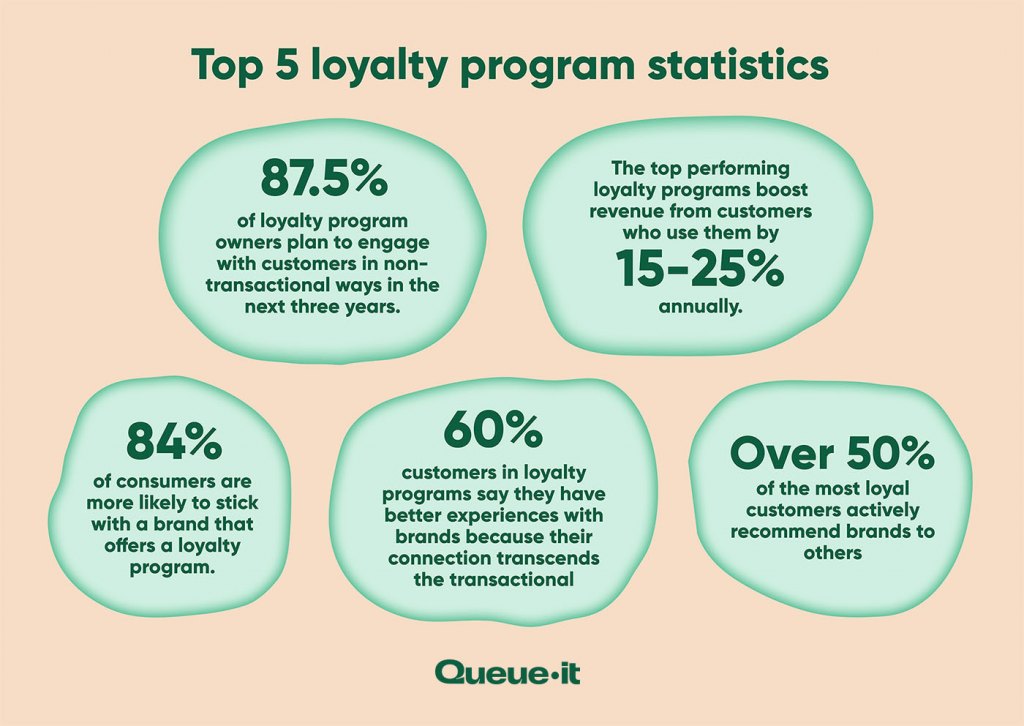
Measuring Loyalty
To ensure your strategies are effective, keep an eye on these key metrics:
- Net Promoter Score (NPS): A simple yet powerful indicator of how likely customers are to recommend you. By regularly monitoring NPS, you can gauge customer satisfaction and identify brand advocates who are likely to spread positive word-of-mouth about your business. Conversely, it can also highlight areas where improvements are needed to convert detractors into loyal supporters.
- Customer Lifetime Value (CLV): This measures the long-term financial impact of each customer, helping identify your most valuable relationships. Understanding CLV enables you to allocate resources more effectively, focusing on nurturing high-value customers while developing strategies to increase the lifetime value of others. It also provides valuable insights for shaping personalised offerings and retention strategies.
- Churn Rate: Tracking how many customers disengage—and why—enables proactive measures to retain them. High churn rates can signal dissatisfaction or competition, drawing your customers away. Analysing churn trends not only helps you identify patterns but also empowers you to implement targeted interventions to rebuild loyalty and enhance the customer experience.
By integrating these metrics into your overall strategy, you create a feedback loop that drives continuous improvement. Regularly analysing and acting on these insights ensures that you stay aligned with your customers’ evolving needs and expectations. Ultimately, these metrics are more than just numbers; they are a reflection of your brand’s ability to build meaningful, lasting relationships with its audience, laying the foundation for sustained success.
Turning Customers into Advocates
At its core, loyalty is about creating meaningful, reciprocal relationships. By understanding your customers, delivering consistent value, and fostering trust, you can transform casual buyers into lifelong advocates.
In a world brimming with options, loyalty is the ultimate differentiator. It’s a testament to your brand’s ability to connect, inspire, and consistently deliver on its promises. So, are you ready to invest in loyal customers who will champion your brand for years to come?























Leave a comment!